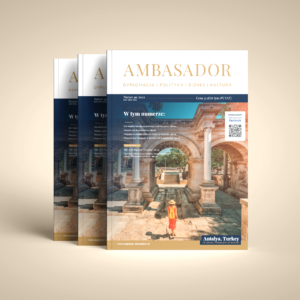As part of the Polish Presidency of the Council of the European Union, The Common Agricultural Policy for Food Security Conference was held at the National Stadium in Warsaw on 5 March this year.
This topic is particularly relevant in the context of growing geopolitical, climate and energy-related threats. The meeting brought together a broad range of experts, including representatives of EU institutions and bodies, as well as international non-governmental organisations such as the Food and Agriculture Organization of the United Nations (FAO), the Organisation for Economic Co-operation and Development (OECD), and the World Bank.
The Minister of Agriculture and Rural Development, Czesław Siekierski, highlighted the importance of carefully selecting the key issues for discussion. This allowed for a substantive exchange on the most pressing matters concerning food security, which are among the priorities of the Polish Presidency. The debate also addressed the role of the Common Agricultural Policy and the effectiveness of the measures necessary for the functioning of the single market and the development of the agricultural sector.
The plenary sessions, organised around three thematic panels, covered the following topics:
- environment, climate and agriculture
During this panel, the discussion focused on how the CAP could evolve in a direction that would enable it to meet complex environmental and climate challenges, while ensuring that agriculture remains a cornerstone of the European economy and society.
A wide range of issues related to environmental protection, greening the economy and greenhouse gas emissions was presented by Professor Marek Wigier from the Institute of Agricultural and Food Economics – National Research Institute.
- access to food through fair and sustainable market chains
The panellists affirmed the crucial role of the CAP in shaping the future of food production, distribution and consumption, as well as in combating unfair trading practices. It was noted that strong and resilient food supply chains should effectively support more sustainable food production and consumption, while at the same time safeguarding agriculture.
– The Common Agricultural Policy remains the most important tool for ensuring food security – said Professor Agata Malak-Rawlikowska from the Warsaw University of Life Sciences, who moderated the discussion.
- investment as a pathway to building competitiveness and resilience in agriculture
This panel was moderated by Professor Wawrzyniec Czubak from the Poznań University of Life Sciences. The discussion emphasised the importance of long-term investments, which on the one hand help to gain competitive advantages and adapt production to the growing demands of consumers, and on the other enable effective responses to challenges such as climate change, environmental protection and the instability of agricultural markets.
The discussion also covered strategies to strengthen the competitiveness and resilience of agriculture, which are essential for ensuring food security and maintaining food quality. Participants sought to answer how the CAP can adapt to challenges such as climate change, market volatility and geopolitical tensions. The debate included topics such as promoting innovation, risk management strategies, and support for investment in sustainable agricultural practices.
It is worth emphasising that at present, food security in Poland and the European Union is not under threat. However, it must be recognised that food security depends not only on agricultural production, a stable market and resilience to change, but also on other aspects of state policy — including economic, trade and environmental policy, as well as support for those in need.
The conference also provided an opportunity to discuss the European Commission’s communication “A Vision for Agriculture and Food”, published in February, which outlines the key challenges facing the agricultural sector and sets out directions for its development.
The key message of the conference was clear: there is no food security without a “healthy” agriculture sector. Agriculture is not just about food production – it also involves the sustainable development of rural areas and consumer safety. The profitability of agricultural production is the foundation for achieving these goals.
Market regulation mechanisms are necessary and should be strengthened to combat unfair trading practices – and also to ensure that farmers receive fair prices, and to reinforce their position within the supply chain. Reducing food waste is also an important objective.
The meeting provided an excellent opportunity for a substantive exchange of views and made a valuable contribution to the ongoing debate within the EU on the future of the Common Agricultural Policy and the role of European food security.



Sledź nas na: